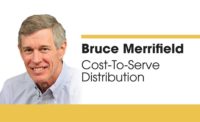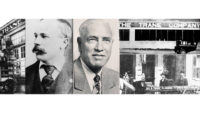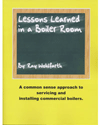Have you ever heard about the guy in Anchorage, Alaska, who took a set of tires to Nordstrom and asked for his money back?
The salesperson contacted the store manager and after some discussion they determined this guy was a very good customer. So they refunded his money even though Nordstrom doesn’t sell tires! Clearly, this is an amazing story that reinforces the Nordstrom policy of customer service and unquestioning refunds.
There’s only one problem. There’s no proof it is true.
It’s part of the Nordstrom myth. I’ve personally heard many different versions of the story, usually from a professional speaker using it as an incredible customer-service example of just how far excellent companies such as Nordstrom will go to take proper care of their customers: “If NORDSTROM can take back tires, shouldn’t YOU rise to that level, too?”
During a consultation several years ago, I had the chance to ask Nordstrom President Jim Nordstrom about the tire story. He smiled and said, “I don’t know. I wasn’t there.” An excellent non-answer.
But the story persists. I heard it recently during a session led by a member of the International Speakers Hall of Fame.
That’s the thing about myths. Many are rooted in some truth, expanding as the story is handed from one person to the next. The fact that ultimately a myth may sound too fantastic yet still be uniformly accepted only happens when other stories about the “hero” are probably true and somewhat consistent.
The tire story speaks to an ideal of superior even unbelievably high customer service. And there are many stories of Nordstrom delivering just that. My own family has personally experienced several.
For example, my wife, Kay, was shopping for our daughter Kelly’s school clothes several years ago. She found an outfit she liked at Nordstrom. Unfortunately, the one that fit Kelly was missing the belt. The salesperson assured Kay she would find the right size belt and contact her. The next day Kay received a phone call from the salesperson. “Hi, Kay! It’s my day off, but I was thinking about that belt. I stopped in a nearby Macy’s and they have the exact same outfit. They’re holding the belt for you and you can pick it up anytime.”
That’s an amazing customer service story.
Stories such as that actually help us believe the tire story might actually be true: “Hey, if this can happen, I guess that can happen, too!”
The other thing about myths is how much people like to share them with friends and peers. I can safely say when I do share Kay’s belt story, whether in a speech or just in conversation, inevitably somebody else wants to share their amazing Nordstrom customer-service story. And so the myth spreads.
Why is this important to you?
Product-oriented organizations are trapped in a world of sameness. Your long-term advantage is no longer attached to the products and/or services you provide. You must find new ways to clearly and definitively separate your company from the competition.
Easier said than done.
Wholesalers and distributors and the future of two-step are under heavy fire from advances in online technology and increased pricing pressure. Certainly, distributors need to move quickly to take advantage of enhanced technology to provide better service. This includes online ordering, vendor-managed inventory, faster deliveries, and enhanced product information and content available on a distributor’s website.
But technology always will be a moving target. We need to also remember that ultimately we still are people doing business with people, even in the B2B world. As it’s often said, people do business with people they like, know and trust.
Equally important, though, is people do business with people they remember. And people remember best when they have a great story.
Lending a helping hand
I recently was working with Gallery Furniture in Houston, Texas. You may have heard of the owner Jim McIngvale. Known locally as “Mattress Mack” for his 30-plus years of crazy TV commercials, Jim became nationally famous when he opened his three stores to shelter and feed victims of Hurricane Harvey.
That’s a great story, but Jim and his team have many, many more.
Recognizing they’re people doing business with people, Gallery Furniture delivery people practice a “what else” philosophy. Whenever they’re done with a delivery they ask the customer “what else” can they do for them?
One customer who lived on a farm said her husband was injured and it was difficult for her to feed the cattle and exercise the horses. Luckily, both delivery people had farm experience and leapt into action. One took care of the cattle while the other rode the horses bareback. Gallery Furniture’s “What else can we do for you,” philosophy wins personal attachment. You can bet that customer will remember and share the story long after the furniture wears out. They’ll be repeat customers, too.
Smart companies understand the power of stories and myth. Smart companies use “myth” as a point of differentiation. Oh, they might use another word for it, such as “brand”, but when managed correctly, it’s still the same.
You see, the essence of your brand is the big, specific promise you make to your customers. What promise can you make that resonates with your target audience? And then what PREPONDERANCE OF PROOF do you have to support that promise? Mattress Mack misheard me and repeated it back as “preponderance of TRUTH.” I think I like his version better.
Nordstrom doesn’t explicitly declare they offer world-class customer service in its advertising, but we all have come to expect it. Why? Because they implicitly show us through great stories, like my wife’s, and mythical stories, like the returned tires. Not only do those smart companies develop strong myth/brands, but they help spread them, too. Yes, even Nordstrom does that.
That’s thing about your myth/brand. You must manage it; you must carry it around with you at all times. Everything walks the talk. You cannot for one second allow somebody else to take control of your story.
You must also look for those tools available to you to anchor your branding myth in the mind of your target market, and trigger the memory even later.
Great brands almost always have great myths attached, whether they’re in the B2C market or B2B. It’s all well and good to tell your prospects and customers about how your company has won industry awards for safety and excellence or how the products you carry or manufacture are the highest quality, but most companies say things like that.
What makes you uniquely and valuably DIFFERENT from your competition?
Tell me a story.
Author bio: Steve Miller is known as Kelly’s dad and marketing gunslinger. He is the author of the Amazon No.1 best-selling book, “UNCOPYABLE: How to Create an Unfair Advantage Over Your Competition.” He has given more than 1,600 keynotes and presentations around the world. Download his free whitepaper, “Speed Branding in 3 Steps,” at theadventure.com/3steps.







